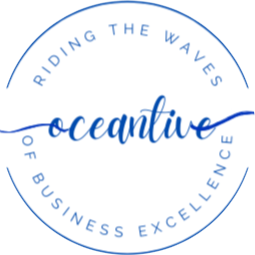Why Leadership Development Matters Now More Than Ever
The world of work has changed drastically over the past few years. Remote collaboration, generational shifts, and rapid technological innovation have all redefined what it means to be a leader. In 2025, effective leadership development is not about charisma or tenure—it’s about adaptability, emotional intelligence, and the ability to lead through complexity.
As businesses face economic uncertainty and increasing employee expectations, the need for strong, future-ready leaders has never been greater. Leadership development strategies must evolve to meet these challenges head-on.
1. Executive Coaching: Personalized Growth That Drives Results
One-size-fits-all leadership programs are out. Executive coaching has become a core strategy for leadership development because it provides individualized feedback and accountability. According to the International Coaching Federation (ICF), organizations that use coaching see significant improvements in leadership effectiveness, communication, and team performance.
Benefits of executive coaching in 2025:
Customized growth plans for high-potential leaders
Increased self-awareness and emotional regulation
Better decision-making under pressure
Support for navigating complex stakeholder environments
2. Emotional Intelligence: The Foundation of Modern Leadership
Technical skills can get you to a leadership position, but emotional intelligence (EQ) keeps you there. In today’s hybrid and diverse workplaces, empathy, active listening, and relationship-building are critical. Leaders with high EQ foster psychological safety, reduce turnover, and drive innovation.
Key EQ components leaders must master:
Self-awareness and self-regulation
Social awareness and empathy
Conflict resolution and interpersonal communication
Training programs that integrate EQ assessments and experiential learning are seeing rapid adoption across industries.
3. Hybrid Leadership Models: Leading from Anywhere
In 2025, leaders must be adept at managing distributed teams across time zones and cultures. Hybrid leadership requires a blend of digital fluency, trust-building from a distance, and outcome-based performance management.
Best practices for hybrid leadership:
Use asynchronous tools to enhance transparency
Set clear expectations and KPIs
Schedule intentional one-on-ones to build rapport
Prioritize inclusion to avoid remote-worker disconnect
Organizations that train leaders for hybrid models report higher engagement and improved productivity across teams.
4. Real-Time Feedback and Continuous Learning
Gone are the days of annual leadership seminars. In 2025, the most effective leadership development strategies emphasize continuous learning and real-time feedback. Tools like 360-degree reviews, pulse surveys, and leadership dashboards provide ongoing insight into performance.
Why this matters:
Encourages agility and course-correction
Builds a culture of openness and accountability
Aligns leader behaviors with organizational goals
The best programs use data to personalize development paths and measure impact in real time.
5. Diversity, Equity, and Inclusion (DEI) in Leadership Training
Modern leadership development must reflect the diversity of the workforce. DEI-focused leadership programs help organizations build inclusive cultures, reduce bias, and unlock the power of diverse thinking.
Elements of inclusive leadership:
Cultural competence and unconscious bias training
Sponsorship of underrepresented talent
Creating space for diverse voices in decision-making
Organizations that prioritize inclusive leadership are not only more innovative—they’re more profitable.
Conclusion: Building Future-Ready Leaders
The leadership development strategies that work in 2025 are agile, human-centered, and data-informed. Whether through executive coaching, hybrid leadership models, or emotional intelligence training, companies that invest in their leaders are setting the stage for long-term success.
Leadership isn’t just a role—it’s a capability. And in a world of rapid change, the organizations that develop resilient, inclusive, and emotionally intelligent leaders will lead the future.
Empower your organization with future-ready leaders—partner with Oceantive to deliver leadership development that drives real business impact.

